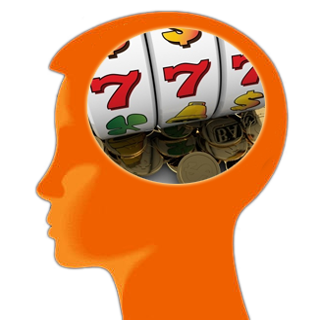Why People Gamble - The Psychology of Gambling
Gambling has always been intrinsic to human behaviour, be it a friendly bet with a friend to the rooting of your favourite sports team. Gambling is a form of entertainment, and online players visit sites like Topboss Group to find online casinos. The most important thing about it is learning to control it, so you don't walk away with maxed out credit cards. We are going to take a closer look at the motivators behind gambling, as explained by various psychologists.

The Illusion of Control
The human brain is predisposed to be overconfident, for example, a gambler may have a vast knowledge about gambling which gives him a false sense of security leading him to make decisions that could have adverse and lingering effects due to not being able to make a precise educated decision instead it's all about the illusion of control. Luck adds to this sense of power, and the gambler begins to believe he has mastered the art of winning thereby placing more significant stakes and taking higher risks. According to psychologists, the two main contributors to a gamblers illusion of control are personal choices and near misses.
The Natural High of Winning
Gambling is a contradictive activity; you may ask why gamble if you know the" house always wins" and in the long run players generally lose more than they win. The bottom line is that taking risks is exciting, and there is the tantalising promise of winning and possibly even winning big. According to research done by scientists, gambling and substance abuse share many of the same neurological processes. When it comes to gambling, winning creates that natural high; however, the build-up is just as potent a stimulator due to the adrenalin rush, and it's what many people seek in entertainment.
The Gamblers Fallacy
The gambler's fallacy is another thinking error behind the motivation to gamble as it leads people to have false expectations when predicting an outcome in a game of chance. Many gamblers base their next wager on a previous result similar to the progression strategies of Roulette, i.e. if you keep betting on black, you will eventually win. Another fallacy is that changing your bet size places you in a better position to land a win and that an eventual victory will make up for your previous losses. It is not the case because, in reality, previous spins don't influence any future spins; instead, it falsifies strategies which are far from beneficial to any gambler; it's a Gamblers Fallacy!
Distaste to Losing
No gambler places a bet with the thought of losing. Research has shown players who place another bet immediately after losing do so in frustration and funnily enough women are the biggest culprits of this reaction as they have a fear of losing hence them preferring private games such as slots. Men, on the other hand, like games, where they think they can exert skill and their attitude towards losing, is very different from that of women. If a man loses big, his self-assertive nature will focus his attention on the fact that he can afford to lose obscuring the embarrassment of loss. It is referred to as "loss chasing" an indicator of a compulsive gambler.
Conclusion
There are many motivators in terms of gambling; some people enjoy the social aspect, others the adrenalin rush of risk-taking, whereas other gamblers are in pursuit of financial gain and take it up as a profession. The media also play an integral role in creating a false impression by portraying it as a champagne laden world where the rich and famous get together and win tons of cash. Realistically this is not the case; gambling is not taboo, and it's all about knowing when to quit and walk away when you have reached your set budget. It's a game of chance, and there are no guarantees!








